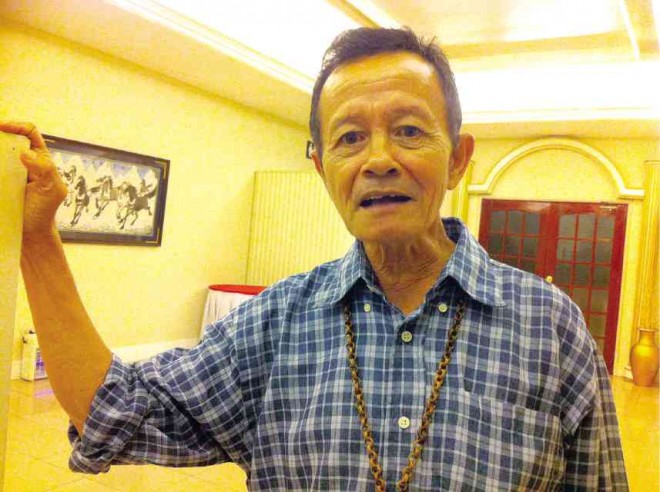Bangsamoro law must be inclusive, says tribe leader
(Second of two parts)
DAVAO CITY—When asked whether the Indigenous People’s Rights Act (Ipra) is applicable to the Bangsamoro territory, Mohagher Iqbal, chair of the Moro Islamic Liberation Front (MILF) peace panel and the Bangsamoro Transition Commission, invoked “kinship” between MILF and non-Islam IP groups in Mindanao.
“We are brothers,” said Iqbal during a round table discussion with the media early this month.
“We descended from the same ancestors,” he said.
But he also said issues regarding indigenous peoples’ rights would be addressed by the proposed Bangsamoro parliament but this would not be included in the Bangsamoro Basic Law (BBL), since the BBL is about the Bangsamoro and not about IPs.
Article continues after this advertisementEdtami Mansayagan said this position would render IPs invisible and voiceless in crafting the BBL.
Article continues after this advertisement“We know how it feels to be [in the] minority because that has always been our experience in the ARMM (Autonomous Region in Muslim Mindanao),” said Timuay Alim Bandara, a Teduray leader.
“The brotherhood of Bangsamoro is still within the collective memory of Maguindanao and Arumanen Manobo,” said Mansayagan.
“Apo Mamalu and Apo Tabunaway were also our Apo because they are brothers,” he said. “But this brotherhood has been very defined and delineated because one of these brothers embraced Islam and the other chose to remain in traditional spirituality.”
He said the ancient pact, which defined the territories of the descendants of the two brothers, included a provision that allowed younger generations to respect each other as brothers, help each other and support each other against external enemies.
“There was a very clear provision in the pact that the descendants of those traditional spirituality should not be forced to embrace Islam,” he said.
“I believe, as member of Arumanen Manobo, that this tradition should be protected, that the BBL should respect and protect this traditional pact between Mamalu and Tabunaway,” he said.
Bandara said they wanted the provisions for the respect of IP rights and ancestral domain be included in the BBL.
Congress gave the assurance that it would pass the BBL in March this year, which would give way to a plebiscite that would stamp legitimacy on the new Bangsamoro government in the new juridical entity.
“We have always been a victim of war, the first to evacuate when fighting between the government and the MILF starts within our territories,” said Arumanen Datu Roldan Babelon.
“But now, we consider ourselves victims of peace, because at least two villages within our ancestral land is now included in the Bangsamoro,” Babelon said.
“We are not against the BBL, we are supporting it. But there has to be particular provisions that should be enhanced to make it more inclusive,” Mansayagan said.
“We are not their enemies,” said Timuay Labi Sany Bello, head of the supreme justice and governance body of the Teduray, one of the indigenous peoples groups within the Bangsamoro area, in an earlier interview.
He pointed to the “sawit,” a ritual used to be practiced by non-Muslim IPs in Central Mindanao every year to commemorate the pact between Mamalu and Tabunaway.
During the ritual, he said, non-Muslim IP groups would offer portions of their harvests to Moros in a gesture of renewing the pact.
In exchange, the brothers would give clothes and farm tools, such as axes and saws.
“They talk of bringing back our kinship,” Bello said. “But my question is, where is the sawit? We cannot talk of kinship without the sawit,” he said.
He said the practice of sawit has been stopped after it was abused by the brothers in the advent of “datuism.”
“Who abused the sawit?” he said. “Because in the time of the Mamalu, they renew the agreement every year, but who abused it?”
Vicky Tauli-Corpuz, UN special rapporteur on indigenous peoples’ rights, said her office was taking note of IP sentiments as her office reviews the draft BBL based on its adherence to the principle of equality and nondiscrimination.
“We take note of the sentiments among IPs, who feel they’re not treated as equals but as wards, which runs against the principle of nondiscrimination and basic human rights,” she said.
“Equality and inclusive participation should be embedded in the law so that it will be addressed,” she said.
